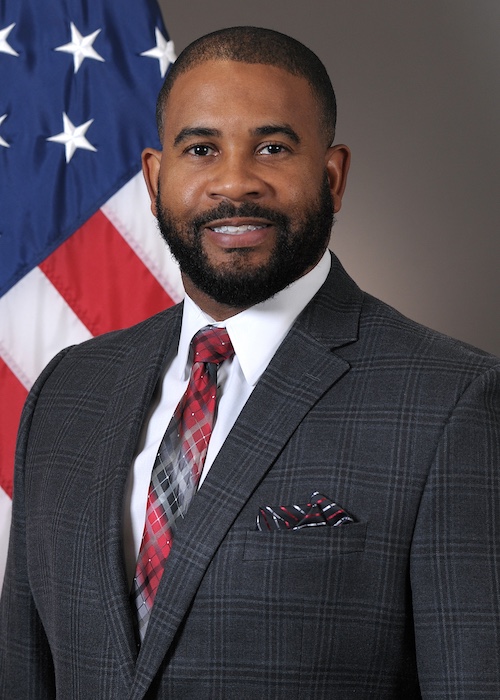
In this Q & A with Dr. Andre Tompkins, we recognize and highlight his accomplishments throughout his journey in the EdD in Leadership program.
Can you share a bit about your background and what led you to pursue an Ed.D. in Leadership at Spalding?
I’m Andre Tompkins from Sheffield, Alabama—a husband, father, and grandfather with a 25-year career in the Air Force. My military experience honed my teamwork and resource management skills, essential for leading effective missions. Seeking to enhance my research and analytical skills after retiring, I chose Spalding University for its reputation in cultivating transformative leaders and its supportive structure for veterans.
What inspired your capstone study, and why was this topic important to you?
On May 24, 2022, while working at Ft. Sam Houston, the Robb Elementary School tragedy unfolded, deeply affecting me and the military community I work with daily as an Army civilian. That evening, holding my young son, I felt a profound need to address the safety of children in schools. My capstone focuses on preventing school shootings nationwide, driven by my dedication to safeguarding children’s well-being and preserving the legacies of the innocent lives lost in Uvalde, TX.
How did your experience in the EdD Leadership program prepare you for your first peer-reviewed journal?
My EdD Leadership program at Spalding University equipped me with rigorous academic training and practical research skills, essential for scholarly writing. The program’s emphasis on critical thinking and evidence-based solutions was instrumental in developing my peer-reviewed journal article. These experiences provided a solid foundation for effectively communicating complex ideas and conducting thorough investigations into significant educational leadership challenges.
Can you give us a brief overview of your peer-reviewed journal article and its key findings?
In my article, “Guardians or Bystanders? Examining School Shooting Responses in the Southern United States,” I explore the critical role of proactive leadership in school safety. My research involved interviews with various stakeholders and identified three main themes: the impact of leadership on safety, the trust-building power of prompt action, and the importance of community connection in enhancing safety. These findings underscore the necessity for local leaders to actively build effective coalitions while fostering a culture of safety and protection on their campuses. Full article can be retrieved at: https://scholarworks.waldenu.edu/jerap/vol15/iss1/5/
Were there any faculty members, mentors, or courses that had a significant impact on your journey?
Throughout my journey at Spalding, Drs. Thomas Malewitz, Kristen Harris, Elizabeth Dyer, and Mistalene Calleroz-White were pivotal in shaping my research focus. They assisted me in identifying the core purposes of my study and uncovering significant themes within the data. Their guidance was instrumental in refining my research approach and deepening my understanding of educational leadership.
What’s next for you—any upcoming projects, research, or career goals?
As a federal employee, my immediate goal is to apply the efficiencies and ethical business practices learned during my time at Spalding to enhance federal operations. I aim to ensure that these practices not only improve efficiency but also uphold fairness, dignity, and respect within the workforce. Looking ahead, I plan to continue integrating these values into my work, contributing positively to the ongoing transformation within the federal government.